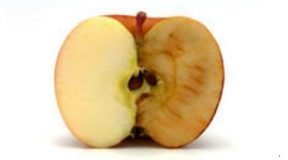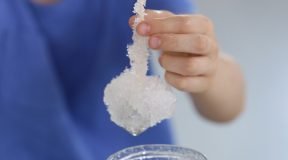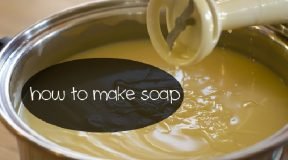Experiment with Deoxidation of carbon dioxide,Chemistry Experiment
Difficulty Level Secondary.

Materials
limestone, dilute hydrochloric acid, magnesium ribbon, PET bottle, straw, clay, lighter,water, glass vessel, and deflagrating spoon
Procedure
- The hole is made in the cap of the PET bottle.The straw is passed through this hole.Surroundings of the hole are shielded with clay.
- The limestone is crushed to the small pieces and is put in the PET bottle.Put some dilute hydrochloric acid and carbon dioxide is produced.
- A little water is put in the glass vessel.Carbon dioxide is poured in the glass vessel.The mouth of the glass vessel is covered with paper.
- A small piece of magnesium ribbon is tied to the deflagrating spoon. The magnesium ribbon is ignited. Magnesium is put in the carbon dioxide of the glass vessel.
Science of Deoxidation of carbon dioxide
The carbon deoxized from carbon dioxide is produced a little in this reaction. You should carefully observe it in the water of the glass vessel. There are tiny black spots of carbon and the white ash of magnesium oxide in it.
Question
Let’s consider the order of affinity for oxygen.Oxygen combines to most materials and makes the oxide.However, affinity for oxygen is different by the materials.Find out the order of affinity for oxygen about iron, carbon, magnesium and sodium by the following chemical reaction.
- The iron is made from iron ore by deoxidation.The iron ore is mixed with carbon and heated strongly in the blast furnace at iron works. Iron and carbon dioxide are made.
- Magnesium burns in carbon dioxide, and the magnesiumoxide and the carbon are produced.
- The sodium metal reacts strongly with water and produces hydrogen. But magnesium doesn't react with water.







